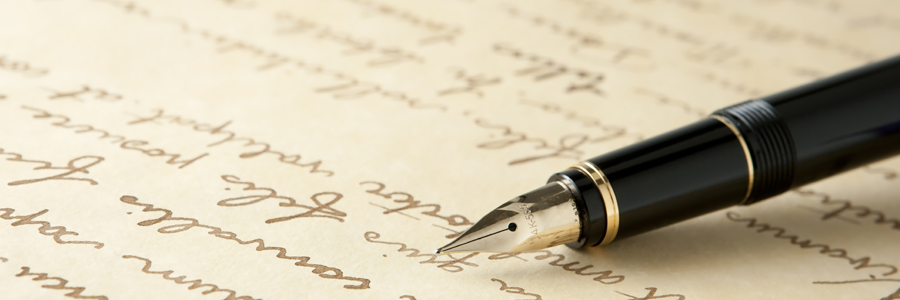
Logbook of an Ambassador
The new US-Administration, Mexico, China and … India
The new US-President won the presidential campaign with anti-Mexico and anti-China rhetoric. By cancelling NAFTA, the free trade treaty among North American nations, he has started to redefine America’s neighbourhood policies. Mexico and Canada have good reasons to expect a rather unfriendly, if not hostile future for their continental relationships. The emblematic “beautiful wall” to be built by the United States against illegal immigration from Mexico will, once built, certainly make trans-border migration more difficult.
Read more
China, India: Who is bigger? A statistical experiment
It is common knowledge that China with its 1,35 billion inhabitants has the largest population in the world, while India ranks second with some 1,25 billion. It is also often stated, especially in India, that India with its higher population growth will overtake China by the year 2023. All figures and dates are approximate. It is a well-known sphere of competition between the two Asian giants, who are, with this respect, also global giants.
Read more
India and the Persian Gulf: a region of growing competition with Pakistan
The Persian Gulf has become a key priority of Prime Minister Modi’s active outreach in the country’s foreign relations. With that, India joins its arch-enemy Pakistan as competitor in a region of growing importance for both. The competition is strategic and economic and will, in the long run, change the power equation between the countries of the region, in particular the fundamental antagonism between Saudi Arabia and Iran.
Read more
Terrorism: Whom does India fear?
According to international media headlines, terrorism seems to hit everywhere and every day. In some places, the threat is new, in other places terrorism has been around for decades. India, too, is not spared of terrorism. India has been plagued for years, and still is, by domestic terrorism, the Maoist Naxalites, initially possibly inspired by China, continuously sustained by domestically grown social injustices. In certain areas, local unrest against state authorities is seen and treated by authorities as terrorism.
Read more
Brexit and India: a light summer fantasy
The United Kingdom is leaving the European Union. But is it the UK? Isn’t it rather the English, taking with them the Scots and Northern Ireland? Scotland and Northern Ireland voted “No” to the question of leaving. That is a fact. A not too speculative guess predicts that Scotland will vote again on leaving Britain. A more speculative dream for some or a nightmare for others sees Scotland and possibly Northern Ireland leaving the United Kingdom and joining the EU on their own.
Read more
India and the European Union: a stagnating relationship
The Indian Prime Minister Narendra Modi has finally made it to Brussels two months ago. With the EU-India Summit of 30th March, Modi remains loyal to his policy of a more ascertained outreach to the world. Since coming into office, he has given the world, especially the wider regional neighbourhood, a clear signal that India wishes to engage again and more forcefully in international affairs, but no longer along the traditional lines of the Non-Aligned and Third World solidarity, as developed by Nehru and his Congress Party successors.
Read more
The Indian Ocean and the Mughal Empire: a lesson for today
The North Indian Mughal Empire ascended during the 16th century, deployed its splendour and might during the 17th century, descended during the 18th century and disappeared in the 19th century. It never ruled over the whole Indian Subcontinent but was, for some three centuries, the dominant empire of its region. Indian history over those three centuries was a history of competing land powers.
Read more
India’s need of enhanced power-projection capabilities
India’s aspiration is to become a ‘leading power’, rather than a ‘balancing power’. We have quoted the Indian Government’s determination before in this column. Re-entering the stage of international politics with this strategic intention takes enhanced capabilities of power-projection. They were lacking in the past; Prime Modi understands that India needs also military means for the higher profile he is seeking for India in world affairs. Sustainable military power depends on a corresponding economic substance. The fall of the international oil price has turned energy imports into a less costly expenditure.
Read more
Hindus and Indian Muslims: History and PM Modi
The Subcontinent is the cradle and home of Hinduism. The Muslims came later; the first were Arab merchants, who reached the Subcontinent’s shores. That was some one thousand and three hundred years ago. From 1200 onwards, Arab, Persian, Turkic and Afghan Muslims settled in Northern India, around Delhi, and built the Sultanate of Delhi. 1526 the Afghan Babur founded in Delhi the Great Mughal Empire on the debris of the Sultanate. Thus, Northern India became home to one of the most splendid empires in history, adding to the Ottoman Empire in Konstantinopel and the Persian Empire of Shiraz and Isfahan one more high civilisation in the Islamic world of that time.
Read more
India’s PM Modi implements his maritime strategy
PM Modi’s diplomacy has demonstrated his strategic choices. In these columns, we have written before about India’s choice to (re)establish ambitions in the Indian Ocean. Now, PM Modi has started the implementation. He does the necessary, he builds up India’s naval forces and reaches out to the Island States in the Indian Ocean for strategic partnerships.
Read more
